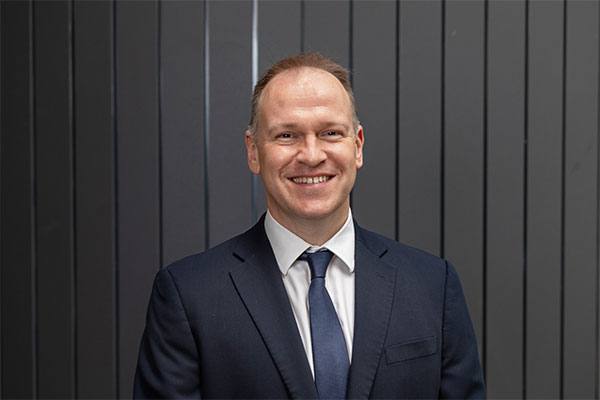Researcher Highlights
Keeping men healthier
Lee Smith
Keeping men healthier for longer will not only improve the quality of life for men as they age, but also save healthcare providers billions of dollars.

Leading the way for reproductive and male health research is Professor Lee Smith, Pro Vice-Chancellor of the College of Engineering, Science and Environment.
Professor Smith, who has an impressive record as an international research innovator in reproductive genetics and endocrinology, is leading a team of University of Newcastle researchers working to understand how testosterone is produced by the body and how it works to promote all aspects of male health.
Testis control of androgen production
“Testosterone is well known for its role in male development, puberty and male fertility, but recent research has identified a much wider range of roles that combine to promote male health.
“Low testosterone is associated with chronic conditions such as diabetes, obesity and cardiovascular disease, and age-related conditions such as frailty, osteoporosis, and muscle-wasting. It has also been linked to an increased risk of early death.
“Testosterone replacement therapy can provide significant benefits to men with low testosterone. Our team is working to leverage this knowledge to develop novel therapies to keep men healthier for longer,” Professor Smith said.
With obesity, ill-health and poor lifestyle habits prevalent in today’s society, Professor Smith hopes that by understanding the complexity of testosterone and cell systems, he’ll be able to develop clinical therapies to help reduce these health issues in men.
“95 per cent of testosterone in men is produced by a single type of cell present only inside the testes – the Leydig cells. Our research focusses on understanding how these cells work, and in particular, how genes and hormones control the production of testosterone by these cells.
“We are working to understand the many cell-types, genes and hormones interacting to both positively and negatively regulate testosterone production, and a myriad of different responses to testosterone levels throughout the body.
“Our novel and unique transgenic approaches are accelerating our understanding towards clinical therapies.
“We can activate or deactivate specific genes inside individual cell-types, track cells throughout development, or remove part or all of an individual cell-type complete. This is advancing the development of viral and nanoparticle gene therapy technologies which deliver new genes to repair damage to the system.
“Our fundamental goal is to understand this system sufficiently to support the development of new therapeutic options for men affected by the multitude of widespread chronic conditions,” he said.
Making new discoveries
With a goal of helping improves lives through his research, Professor Smith is working towards a single treatment approach which will promote long-term health.
“The possibility that a single injection by a GP can improve a man’s health for many years is exciting.
“Our work is taking the most fundamental understanding of knowledge at a genetic and molecular level and turning this into therapies that have the potential to impact millions of lives.
“This knowledge has application in areas such as male development, testis and prostate cancer, male fertility, and chronic clinical conditions such as obesity, diabetes and heart disease.
“Our research goals focus on the future management of healthy ageing in men. Keeping men healthier for longer will not only improve the quality of life for men as they age, but also provide billions of dollars of savings for healthcare providers that can be invested where needed,” he said.
Professor Smith is still driven to make new discoveries – excited for what is next to come.
“Discovery is the most exciting aspect of research. I have on many occasions been fortunate enough – for a brief period of time – to be the only person ever to know that the world works in a certain way. That never gets old!”
The University of Newcastle acknowledges the traditional custodians of the lands within our footprint areas: Awabakal, Darkinjung, Biripai, Worimi, Wonnarua, and Eora Nations. We also pay respect to the wisdom of our Elders past and present.
